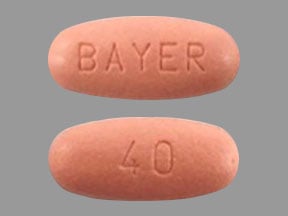
Stivarga Coupons & Savings Card – Discount Prices from $6462.94
My prescription
Edit
40MG, Stivarga (21 Tablets)
Select pharmacy

Albertsons
$6462.94
COUPON PRICE
Walmart
$6473.98
COUPON PRICE
Walgreens
$6484.97
COUPON PRICEStivarga savings card
Show this card to your pharmacist
Albertsons
$6462.94
BIN
ID
PCN
GRP
019876
LH01147288
CHIPPO
LHX
Powered by
Related kinase inhibitors prescriptions
Related kinase inhibitors prescriptions
Price history for Stivarga
21 Tablets, 40MG
Average retail price for Stivarga
Average SaveHealth price for Stivarga
Our price history data is based on aggregated prescription data collected from participating pharmacies in America. Our prescription data updates daily to reflect the latest price changes. If you notice a missing data point, it means there wasn't sufficient data available to generate a monetary value for that date.
*Retail prices are based on pharmacy claims data, and may not be accurate when we don't have enough claims.
Stivarga dosage forms
Dosage Quantity Price from Per unit 40MG 21 Tablets $6462.94 $307.76 40MG 28 Tablets $8614.75 $307.67 40MG 84 Tablets $25829.25 $307.49
| Dosage | Quantity | Price from | Per unit |
|---|---|---|---|
| 40MG | 21 Tablets | $6462.94 | $307.76 |
| 40MG | 28 Tablets | $8614.75 | $307.67 |
| 40MG | 84 Tablets | $25829.25 | $307.49 |
Is Stivarga chemotherapy?
Stivarga (regorafenib) is not classified as traditional chemotherapy. It is a type of targeted therapy known as a multikinase inhibitor, which works by blocking specific enzymes that promote cancer cell growth.
How successful is Stivarga?
Stivarga (regorafenib) is a medication used to treat certain types of cancer, including metastatic colorectal cancer, gastrointestinal stromal tumors, and hepatocellular carcinoma. Its success can vary depending on the individual patient and the specific condition being treated. Clinical trials have shown that Stivarga can help extend progression-free survival and overall survival in some patients. However, the effectiveness and success rate can differ based on factors such as the stage of the cancer, previous treatments, and the patient's overall health. It is important for patients to discuss with their healthcare provider to understand how Stivarga may work for their specific situation.
Does Stivarga shrink tumors?
Stivarga (regorafenib) is a medication that can help slow the growth of tumors and may shrink them in some cases. It is used to treat certain types of cancer, including colorectal cancer, gastrointestinal stromal tumors (GIST), and hepatocellular carcinoma. The effectiveness in shrinking tumors can vary depending on the individual and the specific type of cancer being treated.
What is the survival rate for regorafenib?
The survival rate for regorafenib can vary depending on the type and stage of cancer being treated. In clinical trials, regorafenib has shown to improve overall survival in certain cancers, such as metastatic colorectal cancer and gastrointestinal stromal tumors. For example, in metastatic colorectal cancer, regorafenib has been associated with a median overall survival improvement of about 1.4 to 1.9 months compared to placebo. It is important to note that individual outcomes can vary, and patients should discuss their specific prognosis with their healthcare provider.
What foods should you avoid while taking STIVARGA?
While taking STIVARGA, it is recommended to avoid grapefruit and grapefruit juice. These can interfere with the metabolism of the medication and potentially increase the risk of side effects. It is also advisable to follow any specific dietary guidelines provided by the healthcare provider.
